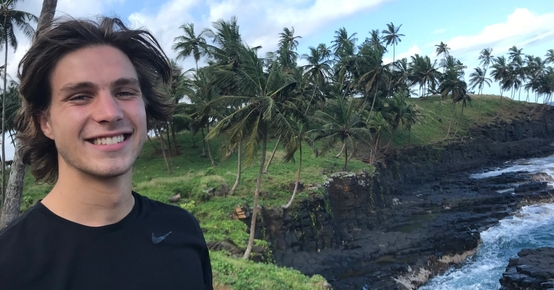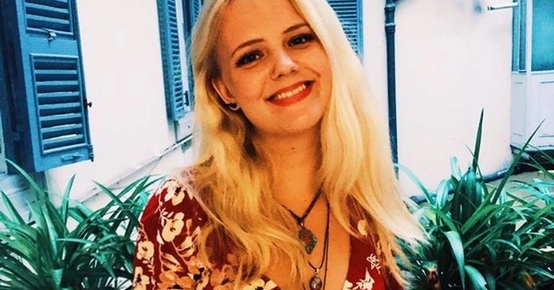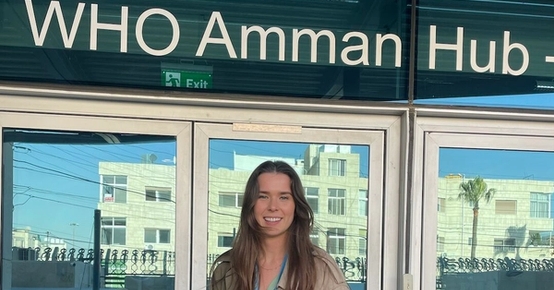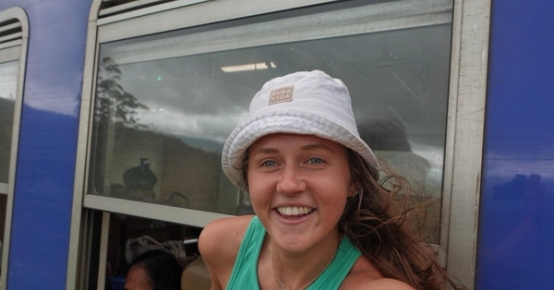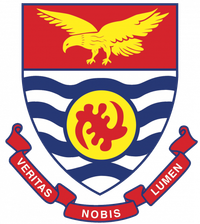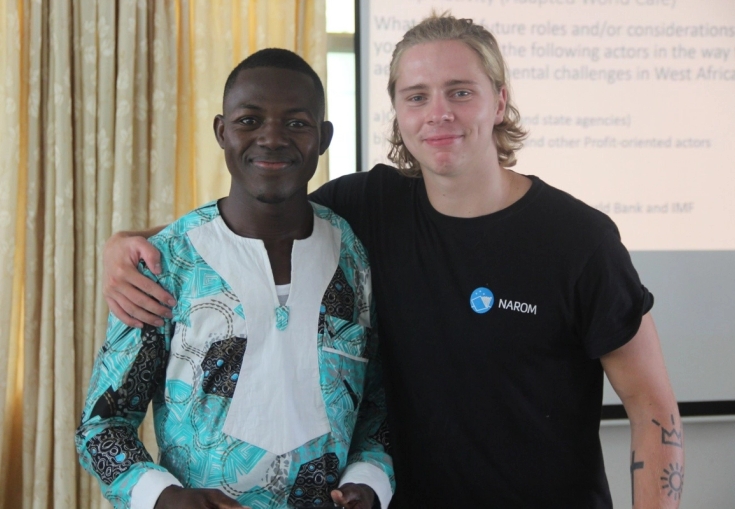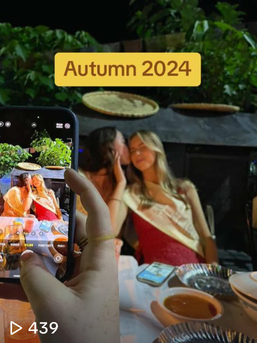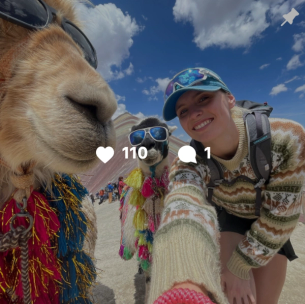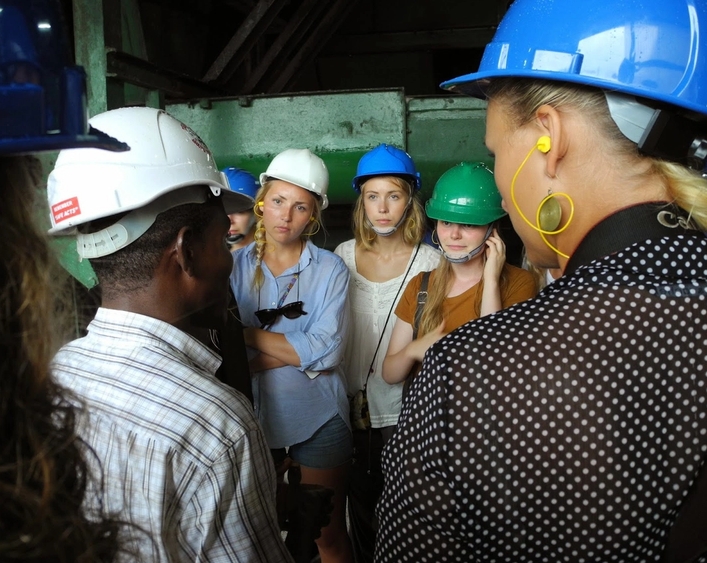
Development Studies 2
In collaboration with OsloMet
Forthcoming semesters:
This program builds on Development Studies 1 in Vietnam. Here you will delve even deeper into key themes within the field, with a special focus on Ghana and West Africa - an exciting region in rapid development. See the theory come to life through three weeks of fieldwork!
You can also qualify for the program if you have 60 credits in social sciences, if you have not taken Development Studies 1.

Practical details
- Application deadline:
- Rolling admission
- Forthcoming semesters:
- 10 February
- Duration:
- 10 weeks in Ghana
- Time and date:
- Spring
- Programme fee:
- 6300
- ECTS:
- 30 ECTS
- Included:
- Study programme, accommodation, lunch on teaching days
About the programme
How do West Africa and Ghana differ from other parts of Africa, and the world, in terms of development? How will the population growth in the region change society? People who rely on agriculture risk having their livelihoods destroyed by the climate changes that are already underway, while the country relies on growth and progress as a result of a breakthrough in oil exploration two decades ago. These are highly relevant environments for critical exploration of the many exciting issues the field encompasses.
Read more about the programme
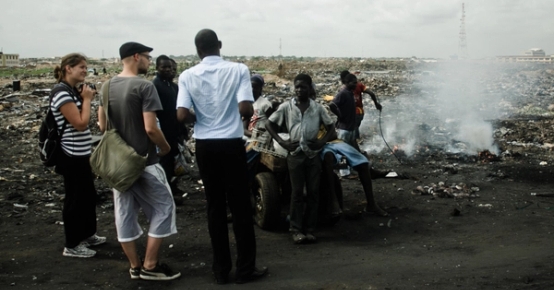
- Ghana
- Development Studies 2
- Inspiration
What is Development Studies 2?
Why choose Development Studies 2?
Gain first-hand experience with development work in Ghana
Try your hand as a researcher through three weeks of fieldwork
Build a solid foundation for further social science studies
Expand your horizons with perspectives from West African academia
Semester overview
The programme is divided into three periods.
Development Studies 2
- 1
Self-study
The semester starts with a six-week self-study period. You familiarize yourself with the curriculum, and ultimately submit a short assignment. The goal is for you to come prepared to the teaching period. You can combine this period with work or travel.
- 2
Teaching and fieldwork in Ghana
The ten-week teaching period in Ghana consists of lectures, seminars, and excursions. Renowned lecturers from around the world teach, and our dedicated seminar leaders organize the seminars. The last three weeks you are on fieldwork, and finally you submit a field report.
- 3
Take-home exam
When the ten weeks are over, you will receive an individual take-home exam. You have three weeks to complete it before the submission deadline. Many choose to stay in Ghana to write their exam or go backpacking during this period. Just remember to allocate enough time to work steadily on the assignment!
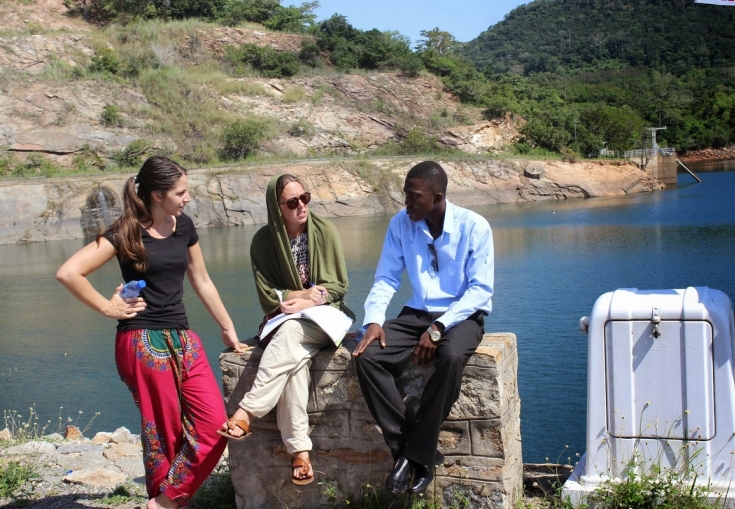
Scholarship opportunities
Are you a Ghanaian national and wish to take part in the Development Studies programme?
Each semester, we offer a select few local students the opportunity to take part in the course through our scholarship programme.

Fieldwork: challenging and educational
Fieldwork is a unique academic and personal experience. Development Studies 2 students travel every spring to various areas, both urban and rural, to conduct a research project for a full three weeks.
You will have the opportunity to research a topic of interest to you, learn about methodology and ethics in social science research, and become part of a community during the three weeks you carry out the project.
Learn more about fieldwork
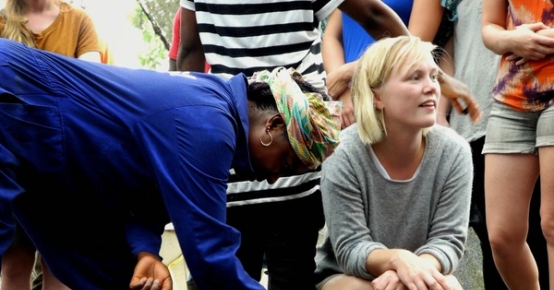
- Ghana
- Development Studies 2
- Inspiration
"Research is also a personal experience"
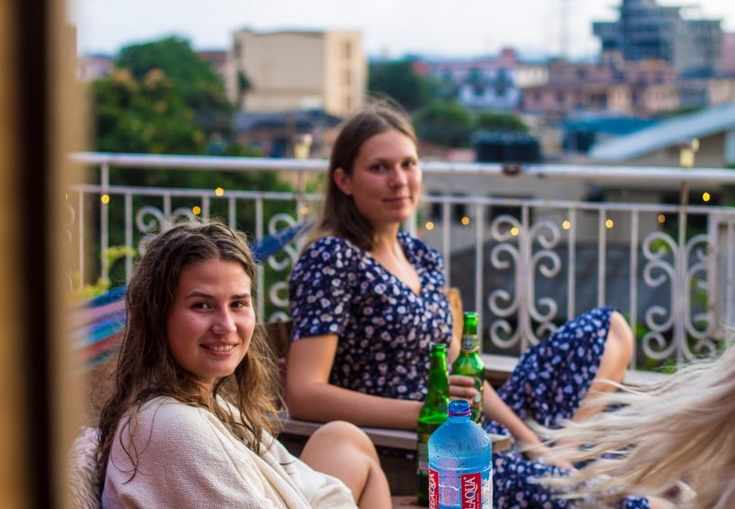
Get a bachelor's degree!
If you wish to continue with development studies, you can apply for the second year of the bachelor's degree in development studies at OsloMet.
If you want, you can go on exchange for two more semesters with Kulturstudier and earn a bachelor's degree with education from a total of five different countries!
You can also apply to have the semester credited towards another bachelor's program.
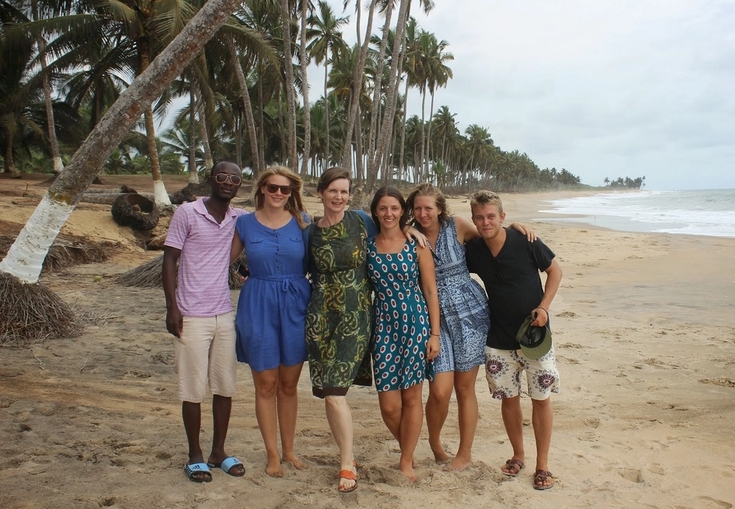
Career opportunities
Many wonder what they can become if they study development studies. There is not one answer to this, but many.
If you study with us in both Vietnam and Ghana, you will gain insight into development issues from two different continents, which will be useful if you wish to work internationally.
Since you get to experience the various issues firsthand and get close to the daily life in the countries you study in, you are in a stronger position than students who have not studied abroad.
Perhaps you want to become a journalist, work in a non-profit organization or at an embassy, or engage in research on development issues? With an education in development studies, the opportunities are open.

Meet the staff in Cape Coast

Hannah Strøm Werkland
Hannah serves as a seminar leader for students in Development Studies 2 in Cape Coast. She holds a bachelor's degree in Development Studies and a master's degree in Human Geography, specializing in development. Her work encompasses cultural and political geography, as well as the role of music and material culture in conflict and development issues. Hannah has previously led seminars for Development Studies 1 in Vietnam.

Michael Asare
Michael is our manager in Ghana. He has been working for Kulturstudier since 2009. He has a bachelor’s degree in History and Philosophy from University of Cape Coast. Michael has previously worked for different NGOs in Ghana.
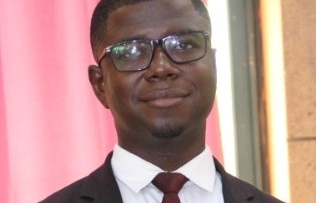
Orlando Dablu
Orlando has been working as assistant manager for Kulturstudier since 2016. He is a former scholarship student on the Global Environmental Studies course and holds a Bachelor’s Degree in Geography and Resource Development with Political Science from the University of Ghana, Legon. He is a good communicator and he is happy to meet new people. Orlando’s responsibilities are mainly practical.
University partners
Read more about
- 1
Fill out the application
To apply for the program, fill out the application form. It is completely non-binding.
- 2
Offer of admission
Assuming there are available spots, we will send you an offer for a study place. To secure your spot, you pay a deposit of 250 EUR.
- 3
Start of studies
Before the start of your studies, you will receive information from us about all practical and academic preparations. The remainder of the tuition fee is to be paid two weeks before the start of your studies.
